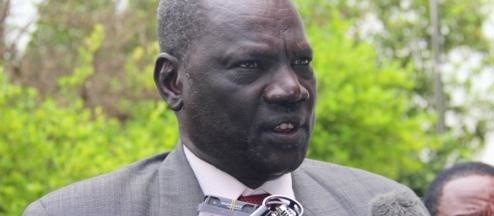South Sudan government is to borrow $500 million from the African Export-Import Bank to bridge the widening gap in its budget.
Speaking to reporters after Friday’s cabinet meeting, Information minister, Michael Makuei said the loan is intended to help fund a 77.4 billion SSP budget deficit.
He said the money would be used for infrastructure, salaries, agriculture and other basic needs, adding that the loan would to be repaid over a period of four years.
“The terms of the contract are not yet determined. At the same time, the interest rates have not yet been determined, but the cabinet has given a provisional approval for the loan,” he said.
Makuei said the finance minister had been directed to table the loan request before the national legislative assembly for approval.
The country’s resource envelope for the 2019/2020 fiscal year is 130.7 billion SSP, with 77% projected to come from oil revenues while the 23% would come from non-oil revenues, according to the minster.
On the other hand, Makuei added, the proposed draft budget for 2019/2020 is 208.156 billion SSP, with allocation of 57% for capital expenditures.
The minister pointed out that 15% of the proposed budget was allocated for operating expenses, 13% for wages and salaries while transfers to the country’s states will account for 9%.
He, however, stressed that the deficit of about 77.4 billion SSP would be covered using money obtained from other sources such as loans.
EAC financial obligations
Separately, Michael Makuei admitted that South Sudan failed to honour its financial obligations to the East African Community (EAC) due to its financial woes.
South Sudan is required to pay $8 million to the EAC as contributions annually.
“We have our own financial crisis and financial situations. Our economic situation is not allowing that to happen and that is why we are borrowing this $500 million,” said Makuei.
South Sudan government has been in default of its financial obligations to the economic bloc for years resulting in it owing a total of $27 million.
Article 146 of the treaty says the summit may suspend a partner state from taking part in the activities of the bloc if that state fails to observe and fulfill the fundamental principles and objectives of the treaty including failure to meet financial commitments within a period of 18 months.
Africa’s youngest nation became the 6th member after joining the regional body in April 2016.




